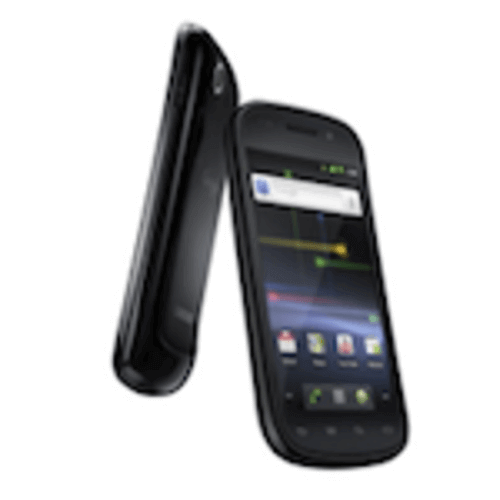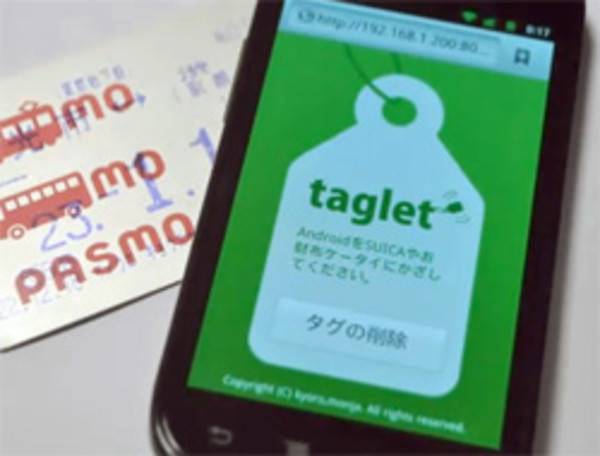The first NFC Android applications have appeared in Google’s Android Market. One, the U.S.-based EnableTable, is an app designed for American restaurant owners who want to offer discounts to their regular customers. The second, a Japanese app called Taglet, lets you register NFC devices with its service, which, when read, will retrieve stored data like a website address or contact information.

NFC, or Near Field Communication, is a short-range, high-frequency wireless technology that allows for data exchanges between devices in close proximity to each other. Support for NFC has been added to the Android mobile operating system in its latest revision, Android 2.3, code-named Gingerbread. And Google’s new flagship phone, the Nexus S, is the first Android device to ship with the necessary hardware to use NFC.
Taglet, a Japanese NFC App

First spotted by NearFieldCommunicationsWorld.com, the Japanese Taglet app works around a limitation currently in place with Android’s support for NFC technology. At present, Gingerbread only allows Android phones with NFC chips to act as readers, not as transmitters. Of course, two-way communication is necessary for any NFC-based mobile payments service, such as the one Google has reportedly been building, which is why the restriction won’t be there for long.
As tag readers, Android phones running Gingerbread and that have the necessary hardware, can scan NFC tags and decode the information they contain. Already, a pilot program in Portland, Oregon is taking advantage of this capability with a special Google Places promotion where NFC-enabled window decals have been provided to participating local businesses. Customers can tap or wave their phone near the sticker to navigate to the Google Places page via their Web browser.
Similarly, the Japanese Taglet app also lets you use NFC to retrieve information like a website address. Since the read-only limitation restricts what you can do with the NFC support built into Gingerbread for now, the Taglet app is more of an effort to provide workaround.
Taglet lets you associate specific data with an existing NFC tag. Then, when you wave your phone over the tag, it can retrieve that information – a website URL, a Twitter handle, an email address, etc. – and act upon it. A video shows, for example, how Taglet can be used to exchange contact information between the Nexus S and another non-Android, NFC-enabled phone.
EnableTable: A U.S. App for Restaurant Customers
The U.S.-developed application called EnableTable lets restaurant owners reward customer loyalty by providing “Welcome Back” coupons that arrive on a customer’s smartphone after the meal and stay there, neatly organized, until they expire. It’s an alternative to the deals provided by social check-in services like Foursquare and Facebook Places, as it doesn’t require a customer to launch an app on their phone and perform a check-in. “No scavenger hunts, elaborate rules, or games required,” reads the website text. “You don’t have to check-in and we do not try to follow you around.”
Instead, the app uses NFC technology to send the coupons to customers by way of a tag embedded in the leather or vinyl restaurant bill holder.
The company calls the technology it uses “restaurant location-based services (rLBS)” instead of NFC, effectively coining a new phrase to describe what it does. While obviously it wants to be considered as a better alternative to Foursquare and the like, trying to lump itself in with other location-based check-in services is actually a bad idea, in our opinion.
NFC-enabled apps will soon represent an entirely new class of services, and, once the terminology makes its way into mainstream vocabulary (which it soon will, thanks to Google and other mobile manufacturers like Apple and RIM, also working on NFC developments), it will be better to be in the group of NFC services than counted among those representing “last year’s technology” – that being the check-in apps.
Both new apps are available now in the Android Market.
Image credit: ?NearFieldCommunicationsWorld.com




















